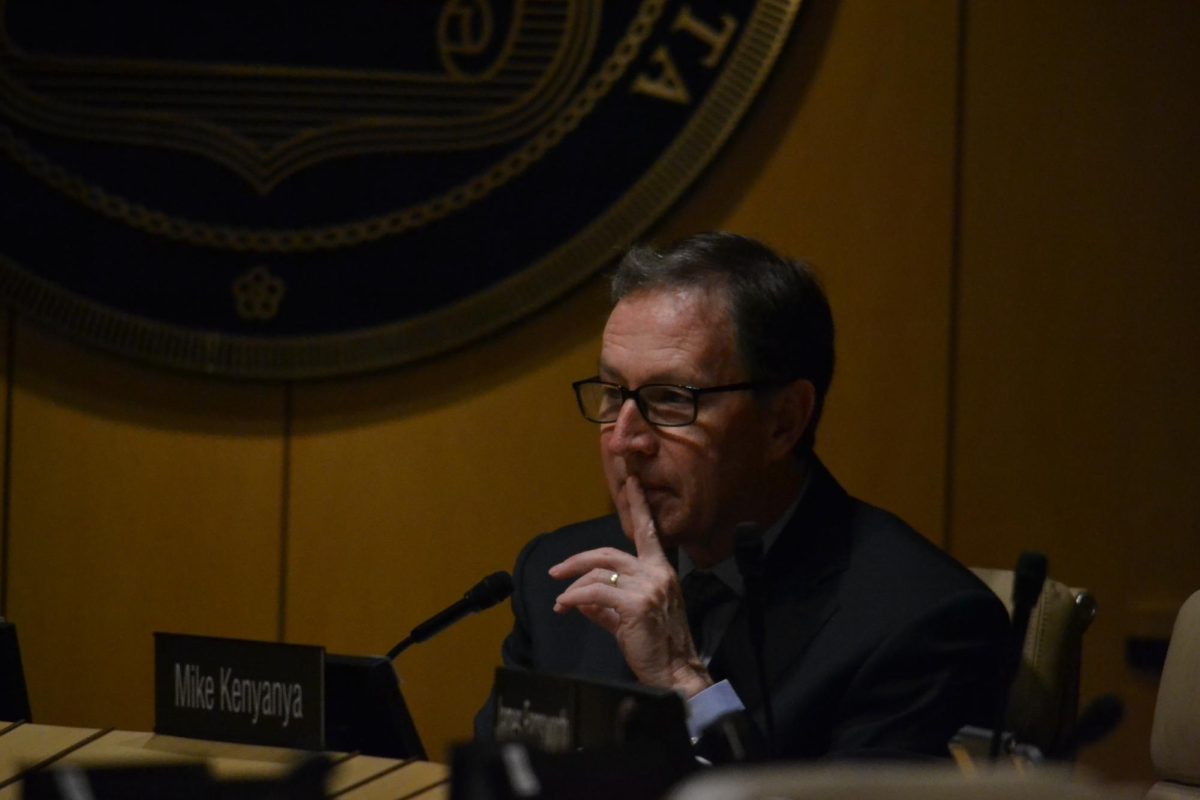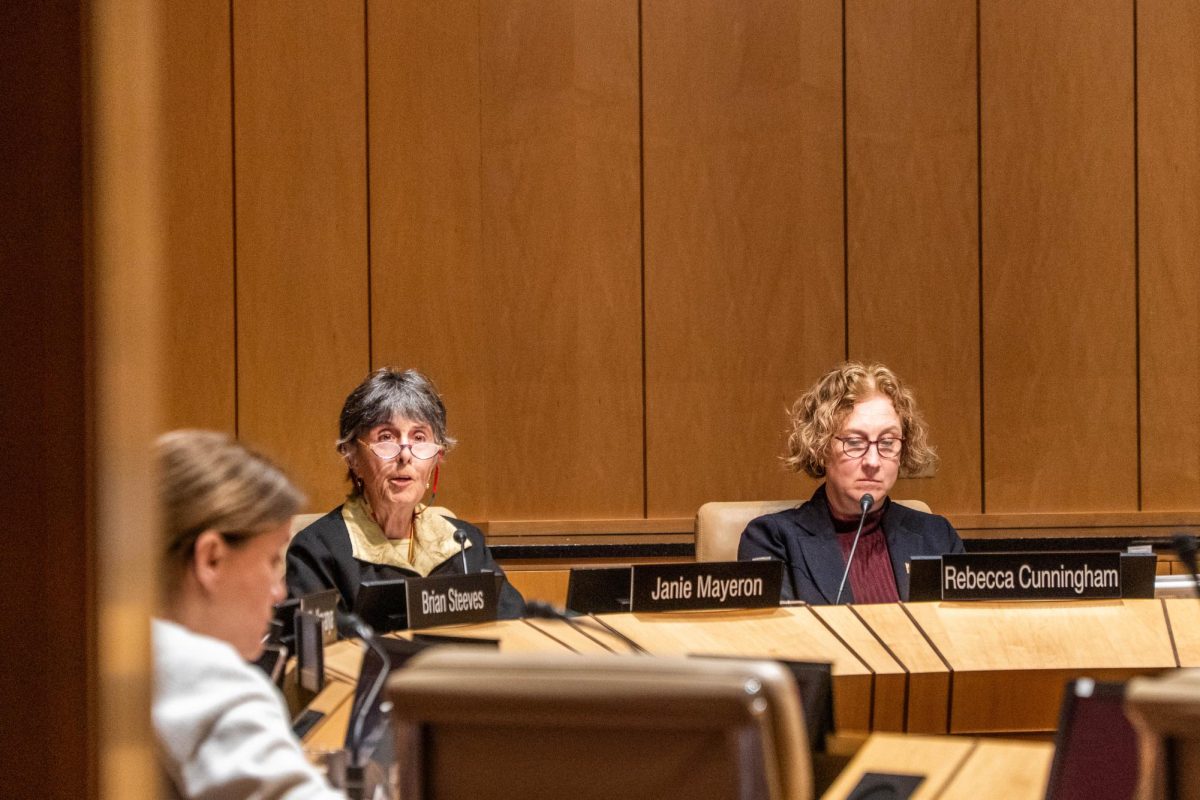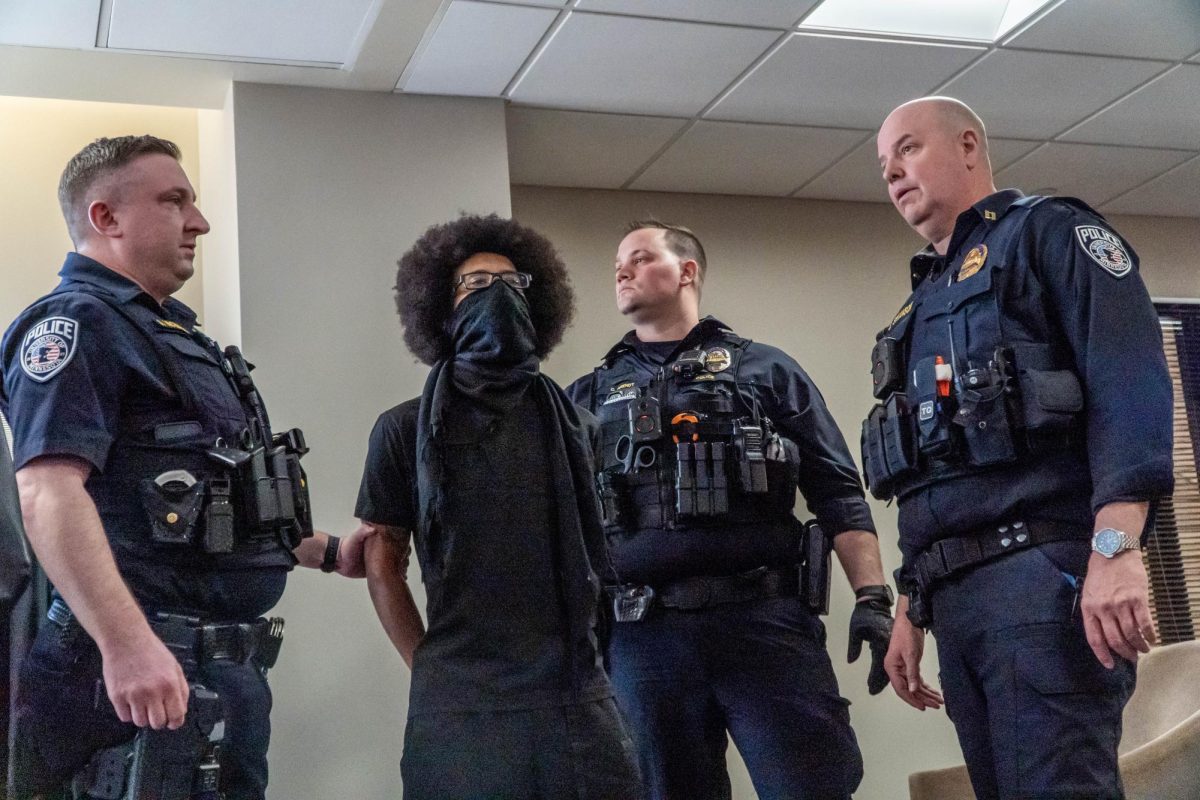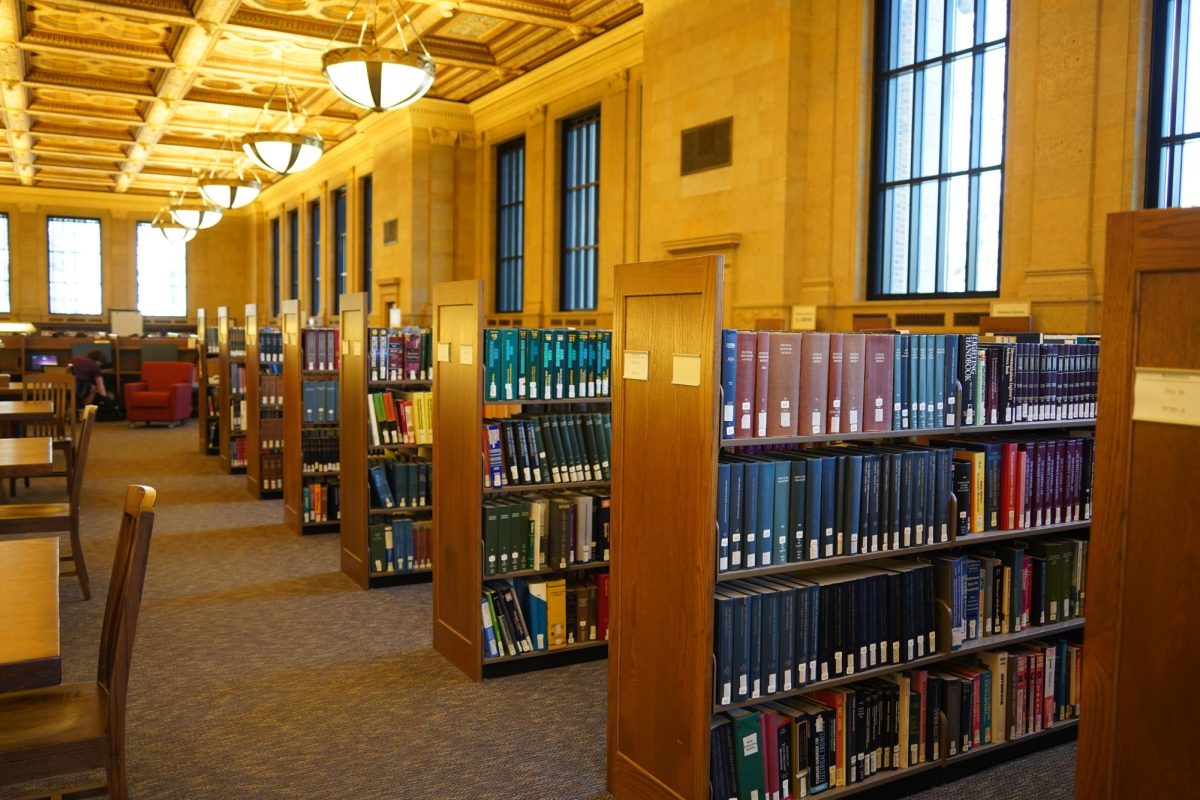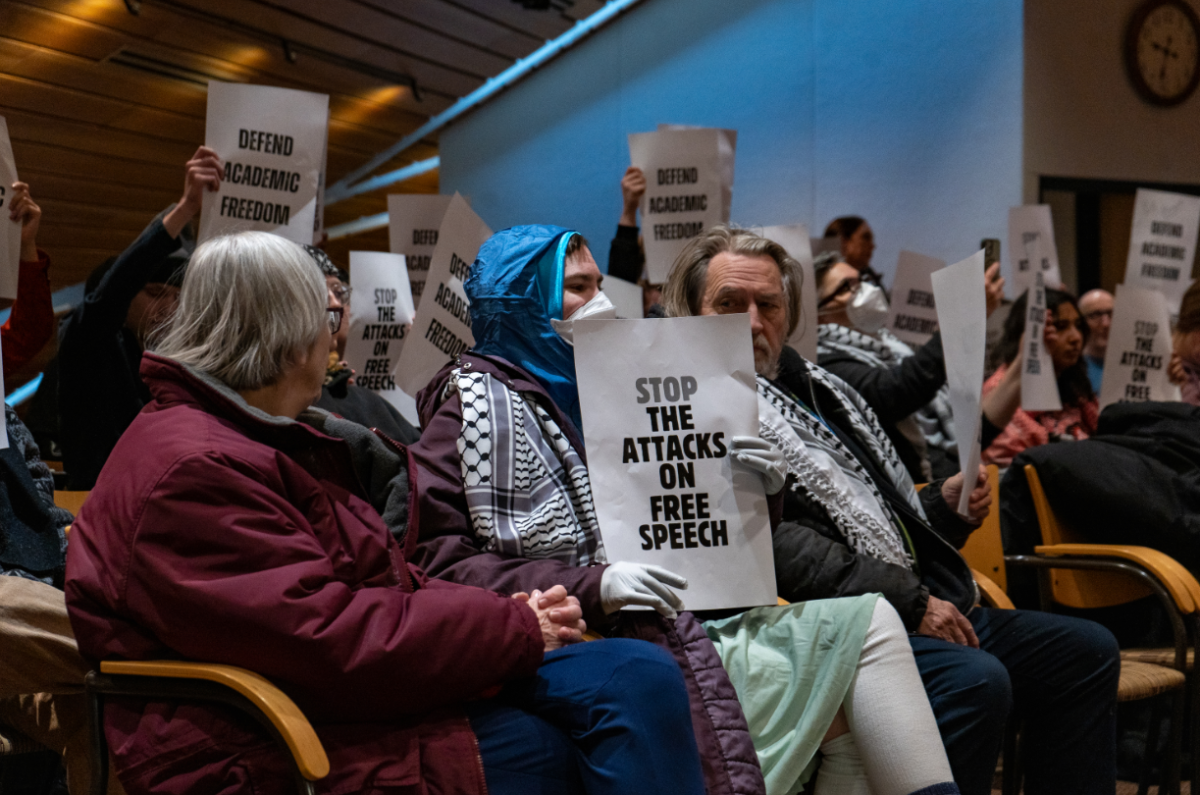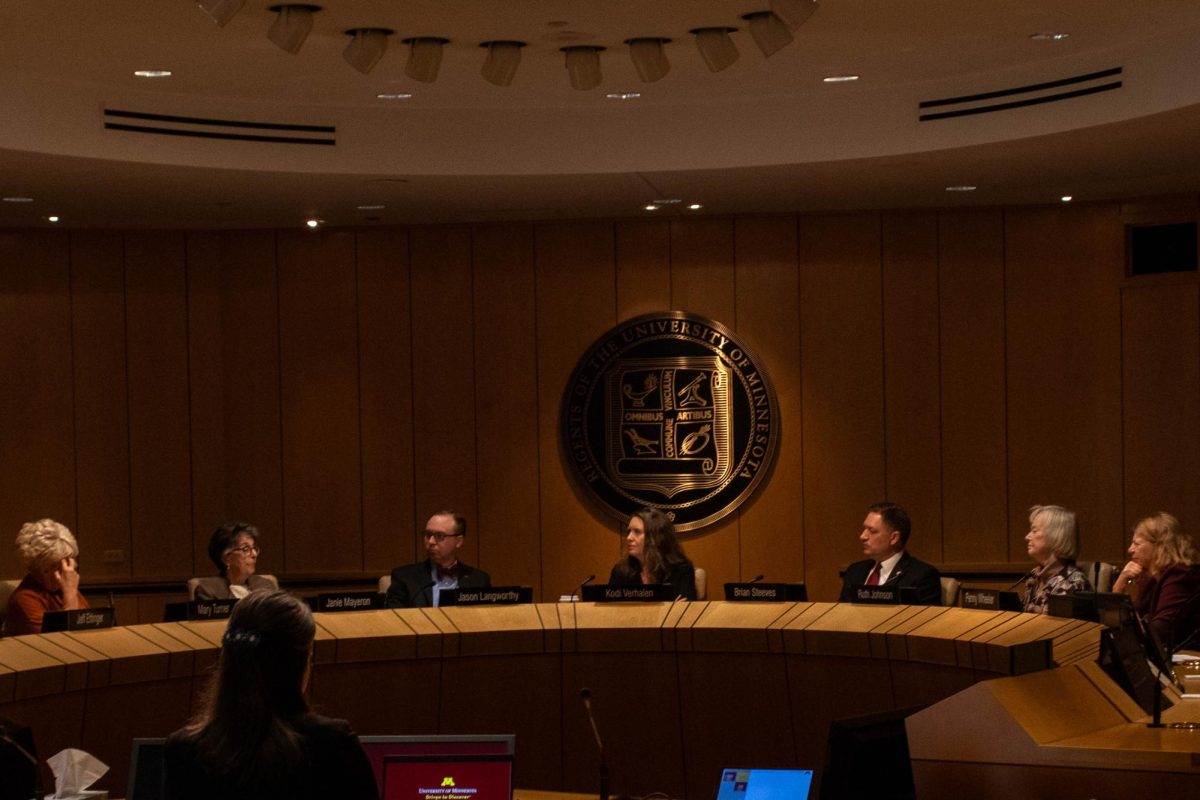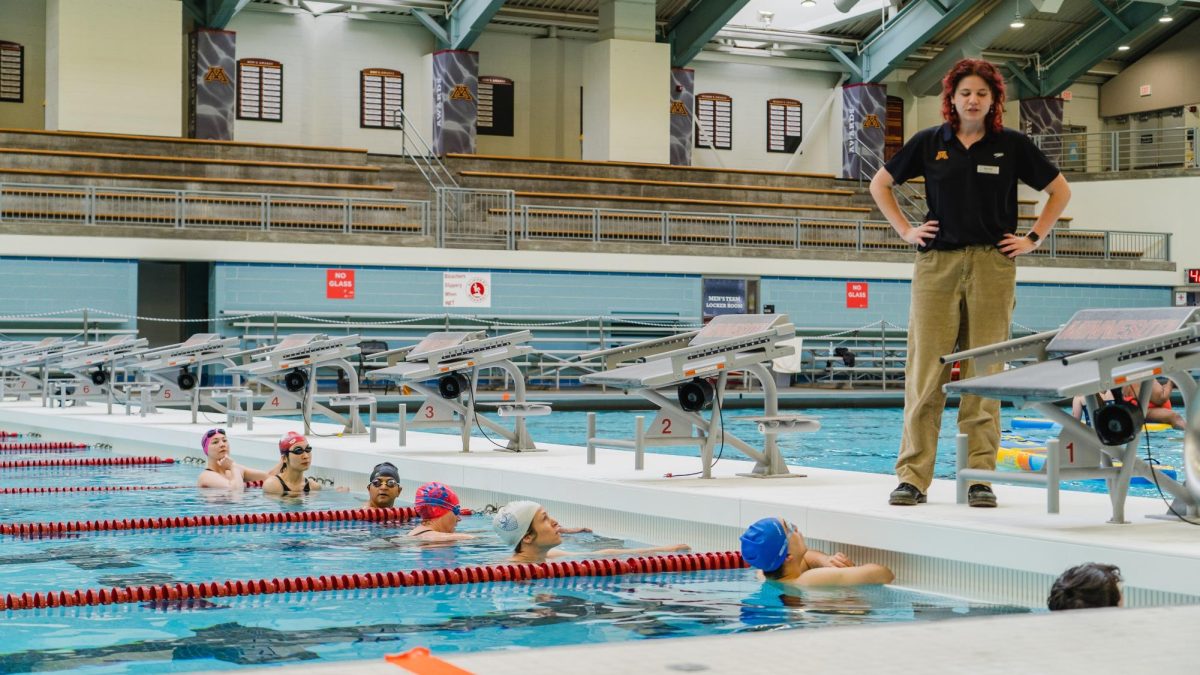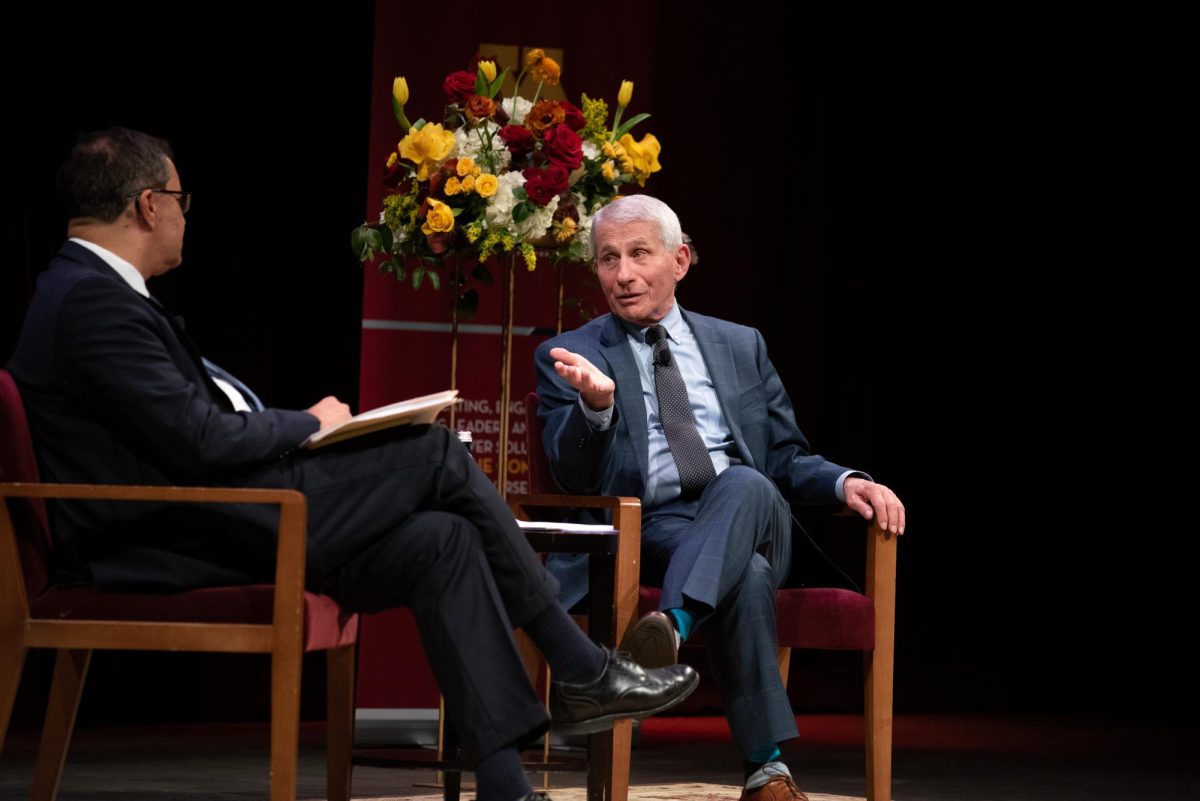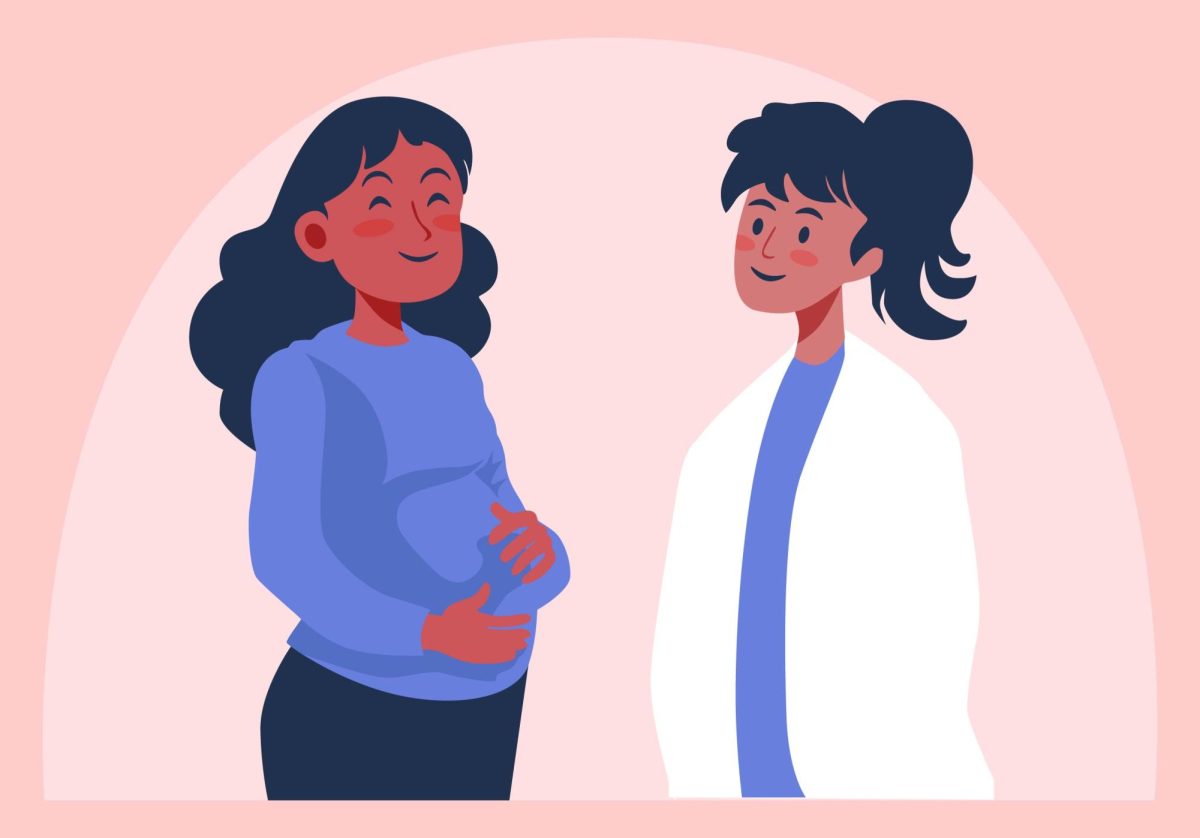As the University of Minnesota’s Board of Regents prepares to announce the four lead candidates in its presidential search on Friday, the Undergraduate Student Government (USG) weighs in on the search thus far.
USG was previously disappointed with its lack of knowledge or involvement in the formation of the Presidential Search Advisory Committee (PSAC), releasing two letters in September and October expressing dissatisfaction with their exclusion despite continuous requests to be involved.
Both letters were released jointly with all campuses system-wide, including each campus’ student governments and Minnesota Senate Higher Education Committee Chair Omar Fateh, according to USG Vice President Sara Davis.
In a University-wide email sent Jan. 24, the Board announced PSAC had narrowed their search to four candidates, which would be shared at the Board’s Feb. 9 meeting.
“The search began with all of you,” Board Chair Janie Mayeron said in the email. “Your input, your voices and your engagement have been integral to every step of this process. From the call for nominations to [PSAC], to the listening sessions held across the state, to the continuous feedback received on the presidential search website, we have all worked together on this important endeavor.”
Of the 46 candidates considered by PSAC, 89% are men, 11% are women and 39% are BIPOC individuals, according to the email.
First-year students for the 2023-2024 academic year were 46.2% men, 53.6% women and 36.6% BIPOC identifying, according to the First Year Class Profile for Fall 2023.
Sara Davis said while BIPOC representation in the candidate pool closely represented the demographics of the most recent freshman class, USG was disappointed by the lack of women included in the pool.
“We did the math,” Davis said. “That’s five candidates. As someone who is a woman and in one of the higher ranking directly elected student roles, that representation for me isn’t necessarily reflected in the senior University administration.”
In response to the Board email, USG released an updated letter on Feb. 2, which listed several student priorities for presidential candidates, including having a candidate with experience in higher education and who places clear importance on student issues.
“It is our expectation that the [Board] will hear our concerns during this time of major transition for the University and will do their best to include them throughout their evaluation process,” the letter said.
USG Communications Director Mina Zhang said USG wanted to release this additional letter to make sure PSAC knows what the student body wants out of its next president so that person can properly represent and advocate for its largest constituent body.
“We are the largest body of stakeholders that they will have to consult with,” Zhang said.
Shashank Murali, USG’s president, said that until recently, PSAC was in the early stage of their search where the process was private, which created a significant barrier to student involvement.
Though the privacy was understandable, Murali and Davis said the University’s student governmental bodies still should have had some kind of privileged access to PSAC’s process.
“Now that they’re in this private process, we get that there’s some things you can’t share,” Davis said in December. “How did you incorporate our feedback? What did you do from everything that we gave you? We haven’t heard any of that.”
USG has not received confirmation from PSAC or the Board that feedback from its joint letters or from the private listening session with the student governmental bodies in October was included in the search process, according to Davis.
“[PSAC] could have said, ‘We incorporated these specific elements into the position description,’ or ‘We noted amongst committee members that this was your feedback and we let them take that into mind,’” Davis said. “Those would have been things they would be able to do and still be in alignment with policy and we never received any of those.”
Murali said because USG has had little direct involvement in the search since October, it has focused mainly on advocacy efforts. In recent months, USG has increased its consultation with constituents by reaching out to voting members.
“Once the committee starts its work, the only thing that we’re able to do is provide input,” Murali said. “We’ve already done that with our letters.”
Though USG is disappointed by their exclusion thus far, Murali said it is very eager to be involved in the process given the importance of selecting a new University president, and always has an “open door” to meet with the Board or PSAC, Murali said.
“We will never say no to a meeting,” Murali said “We’re always willing to converse and talk with them in a respectful manner and try to get our information out there.”
Despite this hope, Davis said USG has no evidence to expect their involvement will change.
“We definitely want to balance the president for this University, but a part of that balance includes balancing our student perspective,” Murali said. “Whoever they choose, I sincerely hope that president is someone who is eager to work with students.”


